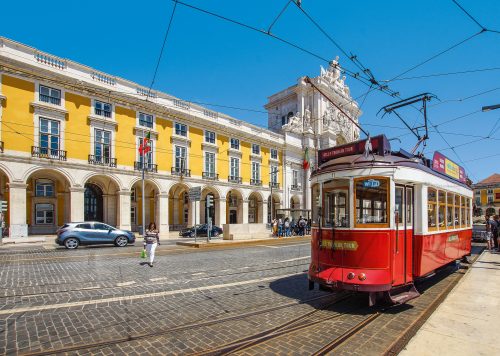29th February 2024
This blog is a concise version of our briefing, Drug Decriminalisation in Portugal: Setting the record straight. This blog is also available to read and share as a PDF.
Summary: Decriminalising the personal possession of drugs works. After decriminalising drugs for personal use in 2001, Portugal saw a significant drop in drug-related deaths, HIV infections, and the number of people in prison for drug offences. At the same time treatment rates rose, demonstrating the effectiveness of a health-focused approach to drug policy.
Approximate reading time: 2 minutes
Faced with rising drug deaths and an HIV crisis, in 2001 Portugal removed criminal penalties for people caught with drugs for their own use - this is known as decriminalisation. Instead, these people see a panel of experts. Those with drug problems are offered voluntary treatment. No further action is taken against most of those without a problem. The drugs are still confiscated, and drug supply remains an offence.
What happened next?
It worked, very rapidly. Engagement with treatment rose, high-risk use and use among the youngest fell. Deaths fell. HIV infections fell. Numbers in prison for drug offences fell. Overall, costs to society fell. Trends in adult drug use mirrored those elsewhere in the EU. Recent cuts to treatment budgets have reduced the benefits of Portugal’s approach a little but, nevertheless, HIV infections and drug deaths remain a small fraction of those in the UK, and one of the lowest rates in the EU. High-risk drug use is still below 2001 levels, and overall use hasn’t increased.

Why is it working?
Reducing the stigma and fear of arrest encourages more people to come forward and accept help before it’s too late, instead of hiding their drug use. The money saved by not arresting and imprisoning people boosts treatment, drug education, prevention, and health care services to meet demand.
What’s happening now?
Portugal’s major political parties, health and police bodies, and drug treatment experts continue to support the decriminalisation and health-led approach because it is working, and the situation is far better than in 2001. By accepting the reality of drug use rather than eternally hoping that it will disappear as a result of repressive laws, Portuguese reform allows drugs to be treated as a health matter, not a criminal justice issue. Details will differ, but this guiding principle will work anywhere - with far better outcomes for people and society as a whole.
For more information and references see: Drug Decriminalisation in Portugal: Setting the record straight.




